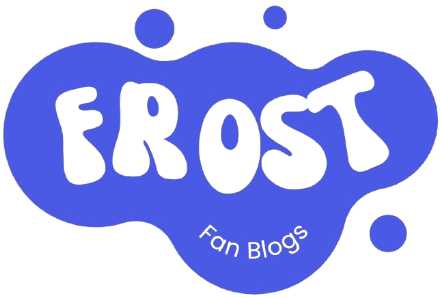In recent years, the term lekuent has started appearing in online discussions, research, and certain niche communities. If you’ve encountered this word and wondered what it means, how it’s used, or why it matters, this article is for you. We will explore lekuent in detail, discuss related competitors, and provide recommendations for understanding or using it effectively.
What is Lekuent?
Lekuent is a term that is still relatively new and uncommon in mainstream usage. While it does not have a standard definition in dictionaries or widely recognized sources, it appears in specific technical, educational, or professional contexts. From available references, lekuent generally refers to a framework, tool, or concept aimed at improving efficiency or understanding in a particular field, although the exact nature can vary depending on the source.
Because the term is not yet widely adopted, it is important to approach it with a mindset of exploration and verification. Many communities online use lekuent to describe innovative approaches, methodologies, or products that emphasize clarity, efficiency, or user engagement.
Competitors and Similar Concepts
When trying to understand lekuent, it can be helpful to compare it to related or competing terms. While no mainstream competitor exactly replicates lekuent, some concepts or tools share overlapping goals:
- Quorent – A platform used in certain technical research fields that emphasizes clarity in data handling.
- Lucent – Often referenced in educational or technical contexts, Lucent frameworks focus on improving comprehension and structured learning.
- Lumen – A broader methodology in business and education circles, focusing on efficient knowledge transfer and practical application.
These competitors are not identical to lekuent, but they highlight the types of problems or opportunities that lekuent seeks to address. By comparing these, readers can better understand where lekuent fits within its niche ecosystem.
Benefits of Understanding or Using Lekuent
Even though lekuent is a new and evolving term, several potential benefits have been noted by early adopters or researchers:
- Enhanced Clarity – Concepts labeled under lekuent often focus on making complex ideas simpler and easier to understand.
- Efficiency – Whether in learning, research, or practical application, lekuent frameworks emphasize reducing unnecessary complexity.
- Adaptability – Early users of lekuent report that its principles can be adapted across different industries or academic disciplines.
- Competitive Awareness – Understanding lekuent helps individuals stay updated with emerging methodologies, especially if they are already familiar with competitors like Lucent or Lumen.
These benefits make lekuent interesting for students, educators, researchers, and professionals who prioritize efficiency and clarity in their work.
How to Approach Lekuent
Since lekuent is still emerging, there are no rigid guidelines for its use. However, the following steps can help individuals or organizations explore it effectively:
- Research Existing References – Look for academic articles, forums, or case studies that mention lekuent.
- Compare with Competitors – Understand how Lucent, Lumen, or Quorent approach similar problems to identify unique features of lekuent.
- Experiment in Small Scope – Try implementing lekuent concepts in a controlled environment, like a learning module or personal project.
- Document Observations – Track outcomes, successes, and challenges to refine understanding.
- Engage With the Community – Join relevant online groups or discussion forums to share knowledge and ask questions about lekuent.
Common Misconceptions About Lekuent
Because lekuent is relatively new, there are several misconceptions:
- Misconception 1: Lekuent is a fully developed product or platform.
- Reality: It is more accurately described as a concept or evolving framework; it may be implemented in various ways depending on context.
- Misconception 2: Lekuent is the same as Lucent or Lumen.
- Reality: While they share similar goals like clarity and efficiency, each has distinct methodologies, target audiences, and use cases.
- Misconception 3: Everyone uses or understands lekuent.
- Reality: Adoption is still limited to niche communities or specialized fields, particularly outside mainstream platforms.
Recommendations
If you want to make the most of lekuent, here are some practical recommendations:
- Start With Education – Learn from articles, tutorials, or discussions that provide insights into the concept.
- Test Small Applications – Apply lekuent in personal projects before scaling to larger initiatives.
- Monitor Competitors – Keep an eye on similar frameworks (Lucent, Lumen) to understand trends and innovations.
- Engage With Experts – Seek input from researchers or professionals familiar with efficiency-focused methodologies.
- Document Your Learning – Writing down observations and reflections can clarify your understanding and help others.
By following these recommendations, users can ethically explore lekuent while staying informed and avoiding common pitfalls.
Conclusion
Although lekuent is not yet a mainstream term, it represents a valuable approach to improving understanding, efficiency, and adaptability. By learning from existing references, comparing them with competitors like Lucent and Lumen, and experimenting in small-scale applications, individuals and professionals can ethically and effectively explore its benefits. Staying informed and documenting your experiences will help you better understand lekuent, contribute to discussions around it, and identify innovative ways to apply its principles.





